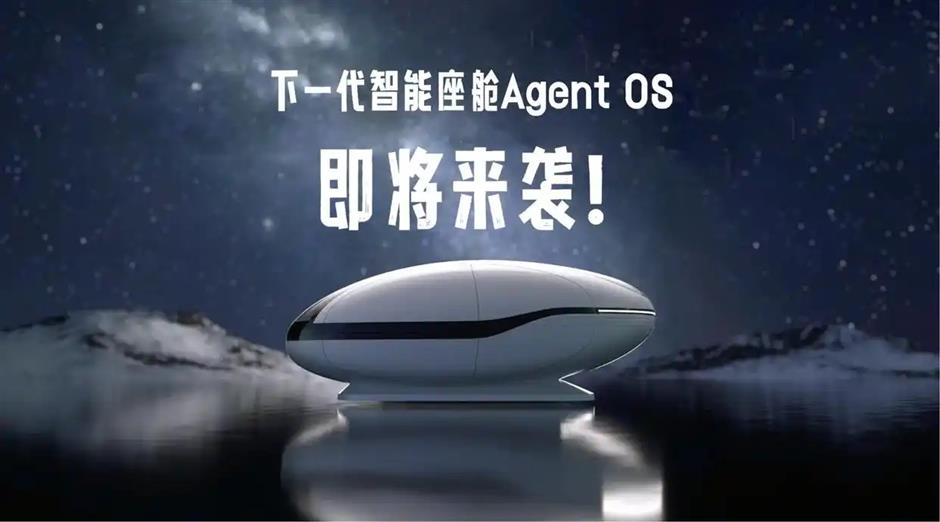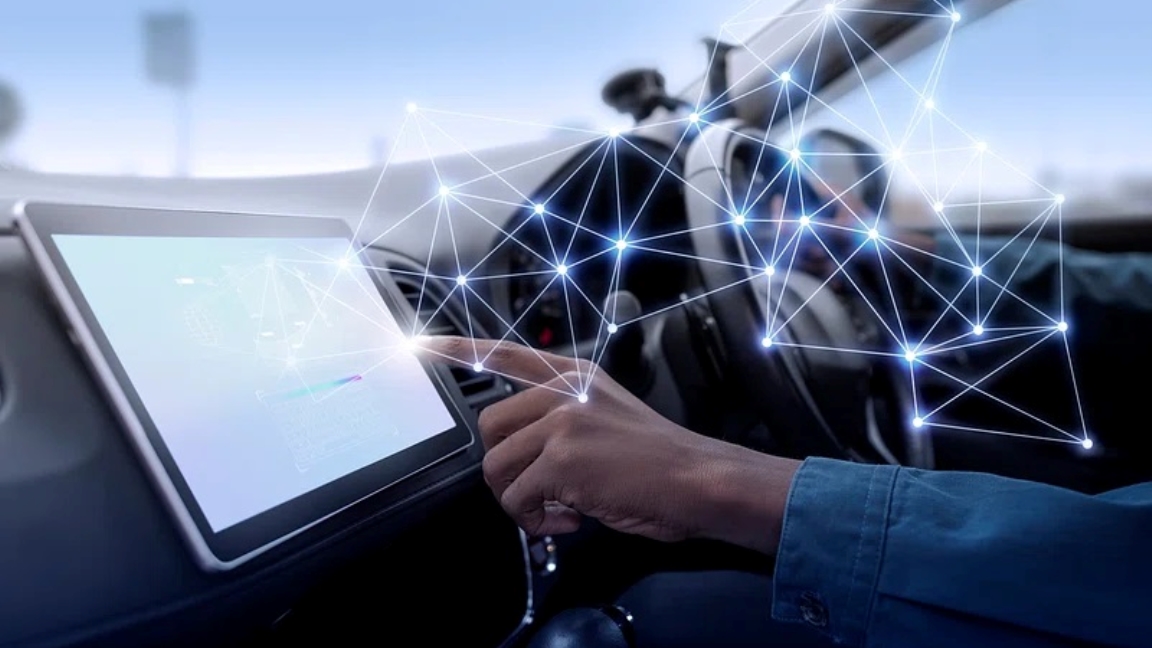
KITT in the TV series "Knight Rider" must be the dream car of many: It can listen and talk to you, give you suggestions and comfort you when needed. Now, about four decades after the series was on air, the dream may become reality with artificial intelligence.
Smart cabins have become a focus at the World Artificial Intelligence Conference (WAIC) 2025, with leading developers promoting smart in-cabin systems.
One example is the smart cabin operating system Agent OS unveiled at the conference. Developed by Shanghai-based Jieyue Xingchen, Chongqing-based Qianli Technology, and Geely Auto Group, the cabin aims to foster a deeper, more intuitive relationship between driver and vehicle.
Unlike traditional AI applications, Agent OS understands users' intent through sight and sound, and interacts more like a real person, according to developers.
"It's no longer about converting user voice to text, then finding answers in a large model, and replying with an emotionless voice. Agent OS directly understands your emotions, sees your expressions, and even thinks about how to interact with you emotionally," said Li Jing, vice president of Jielue Xingchen. "It can serve as a 'living space' that offers entertainment and gaming."

Agent OS is expected to be the next-generation smart cabin that can perceive, communicate and make decisions on its own.
Agent OS can also be aware of different scenarios and respond, such as opening the trunk automatically when it recognizes luggage, dimming voice and music volume when sensing a baby sleeping in the car, and warning the driver about illegal parking.
Of course, the cabin also features a fully integrated map that merges 3D navigation with intelligent maps. It provides a comprehensive view of real-time surroundings, traffic data and navigation.
Banma Network Technologies, an Alibaba-backed autonomous-driving software start-up, held a live demonstration of its smart cabin system.
The demonstration simulated a coffee ordering scenario, in which users can order a cup of coffee in a car installed with Banma's YuanShen AI operating system. Users can select the flavor and then place the order and make payment – all through conversation. Then a humanoid robot from the coffee shop beside will deliver the coffee to the car window.
"YuanShen AI is based on the Qualcomm 8397 platform, capable of achieving 90 percent of the smart cabin's service closed-loop entirely, that is to perceive, to make decisions and to execute, on the vehicle," said Si Luo, Banma's chief technology officer.
To date, YuanShen AI has collaborated with brands such as BMW and IM Motors, deploying its technology in over 7 million smart vehicles.

A car from IM Motors with YuanShen AI is on display at WAIC, showing how you can order a cup of coffee through the system.
The rise of smart cabins for vehicles can be traced back to the launch of Apple CarPlay in 2014, which was the initial formation of the smart cabin concept.
The Tesla Model S revolutionized traditional central console design with an 17-inch touchscreen, driving the industry's shift towards intelligence.
In the latter half of the second year, Geely Boyue and Roewe RX5 were launched in China, introducing large central control screens to mainstream models for the first time and initiating an "arms race" for in-car large screens.
A decade later, mainstream car models are generally equipped with multi-screen linkage, voice control, and other interaction methods, integrating functions such as navigation, entertainment, and office work.
Recent data highlights a significant surge in smart cabin installation rates across passenger vehicles over the past three years, signaling a rapid transformation in automotive technology.
According to figures from Gaogong Intelligence and the China Association of Automobile Manufacturers, vehicles priced above 200,000 yuan (US$27,956) had seen near-universal adoption by last year.
Even entry-level cars that cost below 100,000 yuan, which had minimal intelligent cockpit integration in 2022, saw their adoption rate rise to 30 percent by 2024, demonstrating a clear trend of smart cockpit technology becoming a standard feature across all price points in the automotive market.
However, insiders said most smart cabins integrated in cars are still quite "basic" and cutting-edge systems with "smooth interaction and perception" are still of relatively low market penetration.
"In fact, it is not just about automobile companies or AI developers, it is about the concepts of users as well," said Wang Yifei, CEO of JDO Auto, a Shanghai-based provider of automotive software and services. "For example, we as developers always pay attention to 'agents' that have perception, autonomy and make decisions and actions. Yet some users may still be used to applications, and they may still want applications when there are better choices."
Wang said what developers need to do is to provide as many options for users as possible, and it still takes time to create needs that can be accepted by most.

